Year-End Bookkeeping is Too Important to Leave to Chance
Are your business receipts, invoices, and account statements living in a box next to your desk?
Is your accounting software giving you error messages you can’t fix?
Are you worried about changes to tax laws that may affect your business?
For a small business, year-end bookkeeping is a way to wrap up the past year, calculate your tax obligation, and reflect on your business needs moving forward. It’s also one of the most notoriously complex and disliked parts of owning a business. Its complexity is compounded by complicated laws that can change from year to year. Failing to keep up with the laws or with the bookkeeping can leave you in debt or in trouble with the IRS.
Year-end bookkeeping is more than crunching numbers
If you’re one of those people who dreads year-end bookkeeping, you’re not alone! It can be stressful and time-consuming. But accurate bookkeeping and reporting are critical to your business success – and required by law.
Good year-end bookkeeping isn’t only about crunching numbers and upholding the law. When done right, it also benefits your business by giving you valuable insight. Including:
- A starting point for next year’s budget
- Making ongoing tax preparation easier
- Data you can use to assess the strengths and weaknesses of your business for strategic planning
Should you do your own bookkeeping?
Many business owners just starting out plan to do their own bookkeeping to save money, but often find that bookkeeping involves more than they expected. Year-end bookkeeping isn’t as simple as reconciling a checkbook. It is a multi-faceted process that requires a basic understanding of laws that affect your business, things like:
- Reconciling and closing all accounts and transactions (credit cards receipts, invoices, vendors)
- Inventory, fixed assets, and depreciation
- Payroll taxes
- Gross sales, sales taxes, and merchant fees
- And much, much more!
Before you begin to wrap up this year, it’s important to take an honest look at your bookkeeping habits, needs, and level of comfort with the tasks you’re about to tackle.
Some questions to ask yourself:
- Am I organizing my paperwork and accounts efficiently every month?
- Am I confident that I understand the tax laws that apply to my business and how to complete the appropriate bookkeeping?
And maybe most importantly, ask yourself:
- Do I have time to do this myself, or would it be more beneficial for me to focus on my business and hire a bookkeeper?
If your records are not as organized as you’d like them; if you’ll need to learn the laws, forms, and processes as you go; or if you’re already burning the candle at both ends running your business, this might be a good time to call Amador Accounting.
We know that when your books are precisely reconciled, your taxes are current, and your business is accurately documented, you can focus on what matters most to your business: its future.
Bookkeeping and taxes are our specialty
There are probably as many different ways to store your business records as there are unique businesses. Maybe you keep your paperwork in an accordion file or drawer in your office. Maybe it’s neatly online, every receipt scanned and filed. It depends on the bookkeeper. Whether you’re high-tech or old-fashioned, chaotic or orderly, Amador Accounting can help. Your specialty is your product or service – ours is your bookkeeping.
We don’t mind sorting through your boxes of receipts or investigating the errors in bookkeeping software, and we know exactly how to close out your year end.
With Amador Accounting as your bookkeeper, you can focus on your business knowing we’ve got your back.
Contact us on the website or call Lisa Amador at 734-330-0907 for more information about our bookkeeping, business consulting, accounting, and tax prep services. If you’ve got questions, we probably have solutions!
